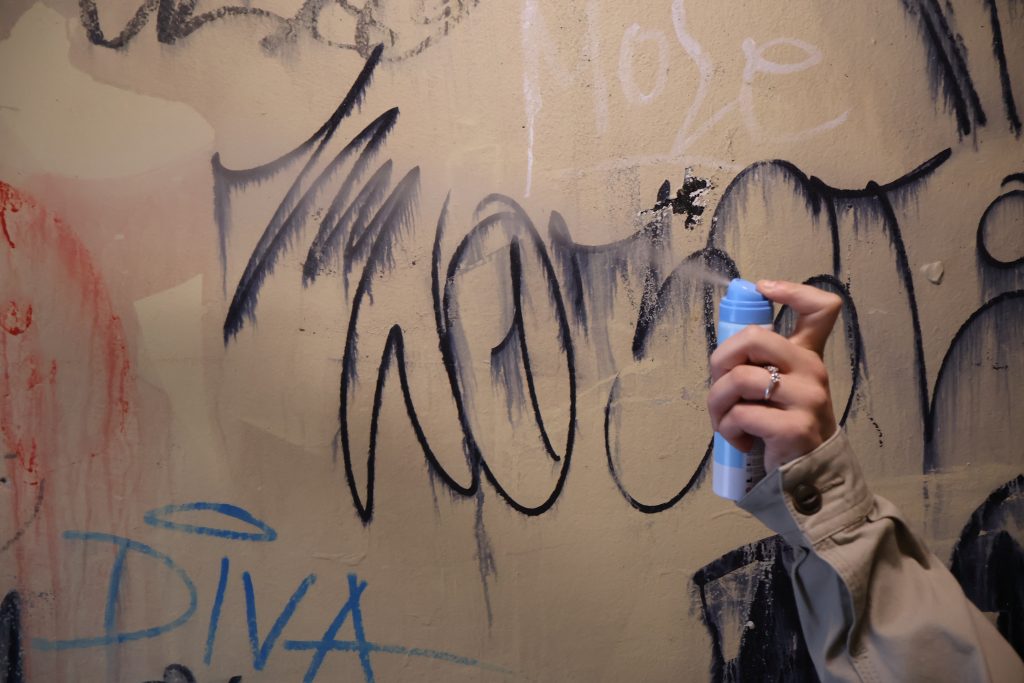After the violent death of the 17-year-old Lisa in Amsterdam, the Dutch government wants to investigate whether pepper spray can be legalized. This would enable women to defend themselves better in unsafe situations. The question is whether that is truly a solution: ‘In this way we are unfairly placing responsibility on the victim.’
A new debate is currently taking place in Dutch politics: how do we ensure that women can get home safely at night and is pepper spray the answer? In Germany, it is already allowed: ‘Pepper spray may be purchased and carried if it is clearly labelled as an animal-defence spray. Its use against humans is legally permitted only in situations of self-defence but outside of such situations its use may be considered unlawful’, tells Maria Arnis, interdisciplinary gender and violence researcher, specialised in sexual violence against women and crime prevention at the Universität Erlangen-Nürnberg.
In the Netherlands, however, pepper spray is illegal. That may soon change, but experts are critical of this proposal. ‘By reintroducing pepper spray, we create a false sense of security while the real issue is much broader and structural’, says Pauline Aarten, program manager at Fonds Slachtofferhulp in The Netherlands, specialised in femicide and sexual violence.
The effectiveness of pepper spray
Pauline Aarten describes it as a challenging debate: ‘With pepper spray, we place responsibility on the victim instead of the perpetrator.’ According to Aarten, this reflects a recurring social narrative: that women themselves must take action in dangerous situations. ‘We have to get rid of that,’ Aarten emphasizes.
In practice, Aarten says, it would not be as effective as thought, since 70% of victims who are attacked experience a freeze reaction and are not able to grab and use pepper spray: ‘We might even end up with a situation where victims are told: ‘‘Now we’ve given you the tools, and you still didn’t use them.’’ Once again, the blame is shifted onto the victim.’
There is also a new ethical issue: when is it acceptable for a woman to use pepper spray, and when not? ‘Suppose a man is harassing a woman and, out of fear, she uses the spray. He hasn’t touched her yet but is behaving in an intimidating way. Then there’s a chance the situation could be turned around, and the woman suddenly is seen as the offender. Once again, this puts the burden on women to take responsibility for their own safety’, says Aarten.


German raise of pepper spray
Maria Arnis understands the raise of awareness after the brutal murder of the 17-year-old Lisa: ‘10 years ago on New Years Eve, 1200 woman were reported in Germany to have been assaulted in one night and caused a significantly raise of the sale of pepper spray, particularly under women. Unfortunately, police or researchers point out that this feeling of safety does not always correspondent to its actual effectiveness in dangerous situations’, stresses Arnis.
Solutions
‘If you propose to introduce pepper spray, you don’t really understand the problem’, says Aarten. ‘The government needs to take action, that requires money,’ continues Pauline Aarten. She argues that there is simply not enough funding for school education, awareness campaigns to make the topic more discussable at home and improving cooperation between women’s organizations. ‘It is painful to see that money currently outweighs the lives and safety of women’, Aarten stresses.
According to Aarten, much more can already be done to protect women: ‘We already know so much, from the red flags of femicide to ways of supporting women. That’s why we need a government that takes steps and stops merely debating.’




